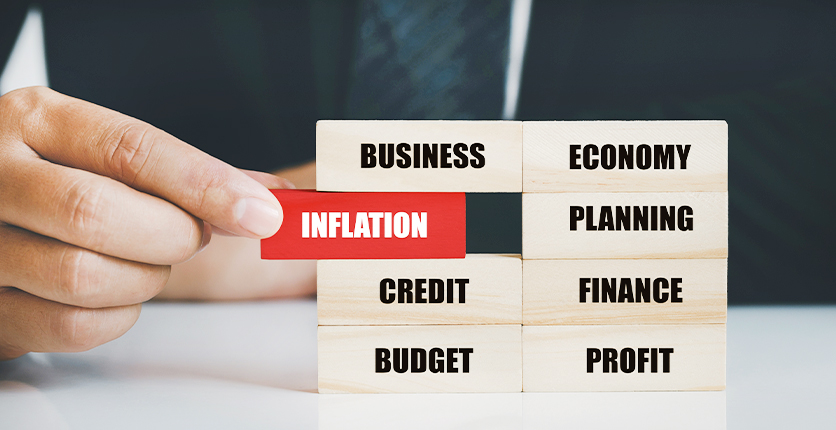Incomes have barely risen, but we’re all having to pay more for groceries, food, petrol, clothing, utilities and other everyday expenses.
According to data released on March 25, inflation in Singapore is at a 10-year high, and it may be some time before we start to see consumer prices stabilise or wages increase.
So, buckle up, because it’s set to be a bumpy ride. In the meantime, you’d be wise to organise your finances, plan a budget, manage your spending, and look for ways to cut back, says Eugene Seah, an executive financial consultant and Million Dollar Round Table achiever. Here are his five tips to weather the latest financial storm.
1. Take control of your cash flow

There’s no better time than now to decide how much cash flow to set aside every month. Having a cash flow will help you feel more financially empowered, because you’ll know where your money is going.
Deduct your monthly expenses from your monthly income, and what you’re left with is your monthly cash flow. Eugene says to divide this money between three “buckets” – the high-liquidity bucket, the mid-liquidity bucket, and the low-liquidity bucket.
“The first bucket holds money that you may need to access quickly or for one-off expenses, like home repairs or medical emergencies, for example. The second bucket is for money that you may want to hold onto for a while but that you can access easily if needed. Some people might use this money for stocks or other mid-risk investments. The third bucket is for money you want to keep for an extended period, perhaps 15 to 20 years if you’re in your 40s, and longer if you’re younger. This is money for your retirement savings and you may decide to use it for voluntary CPF fund top-ups or to buy long-term annuities.”
2. Force yourself to save every month

The earlier you start saving, the more comfortable you’ll be in the long run. In the short term, knowing that you’re putting money aside every month will give you peace of mind, which is much-needed in our current anxiety-inducing financial climate.
Eugene suggests saving 20% to 30% of your income every month. You may decide to put this money towards your retirement plan. When your salary increases, save a bit more or use the extra money to buy another retirement plan. As long as you force yourself to save part of your income every month, you’ll have a buffer against unexpected financial setbacks.
Get started on your investment journey with these partners like Stashaway, Syfe and Endowus that offer special perks for SAFRA members.
3. Learn to differentiate between needs and wants

“Singaporeans are lucky – we can dine in fancy restaurants, shop at designer boutiques and drive expensive cars. But because we have so many luxuries at our disposal, many of us see these as needs rather than wants, and as a result, we fritter our money away on unnecessary items,” Eugene says.
“Nobody is suggesting you go without; rather, look at what you’re spending your money on and ask yourself if they are necessary.
“Your bills and mortgage are needs. When it comes to wants, be mindful about how much you’re spending. Understanding the difference between needs and wants can save you a lot of money in the long run.”
4. Look at where you can cut back

“Why fork out $5 for a cup of coffee from a trendy cafe when you can get a kopi-o for 80 cents at your local kopitiam?” Eugene asks. “Likewise, why spend $10 or $15 on lunch when you can get a decent economy rice meal for, say, $4 or $5?”
He recommends looking at all your expenses and seeing where you can slash costs. There are always more affordable alternatives if you take the time to look for them.
Of course, there’s nothing wrong with enjoying your earnings and treating yourself. Eugene says you can always put some money aside every month for “guilt-free” spending.
5. Educate yourself about money

The more knowledgeable you are about money, the smarter you’ll be about saving, spending and investing. And with the way the global economy is right now, it pays to have a better understanding of how money works and what it can do for you.
He recommends reading as much as you can about the subject, attending workshops and seminars, and talking to people like financial planners.
“Acquiring knowledge takes years, so be patient and open-minded,” he says. “Educating yourself means you’ll be in a better position to make more informed decisions.”
Want more articles like this, and other lifestyle content right in your inbox? Sign up for the eNSman Newsletter – you don’t need to be a SAFRA member to subscribe – and never miss another story!







